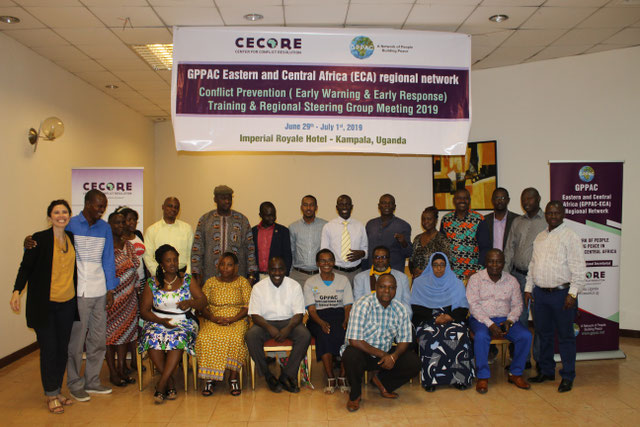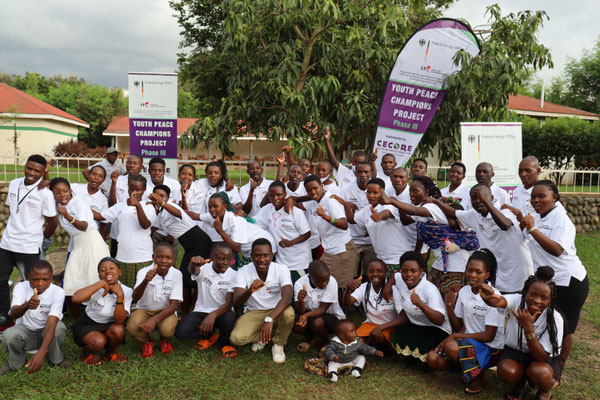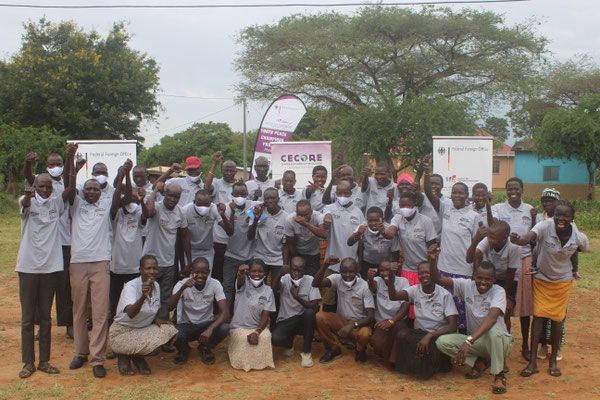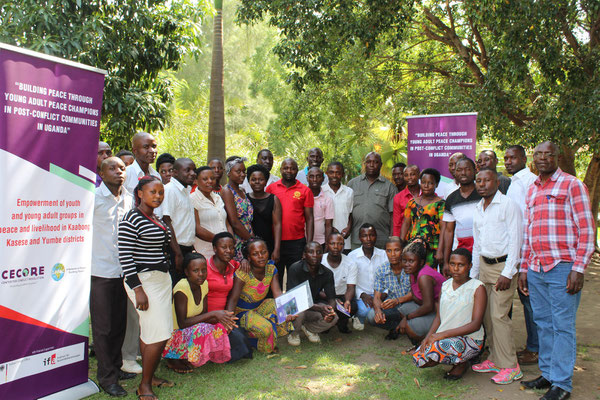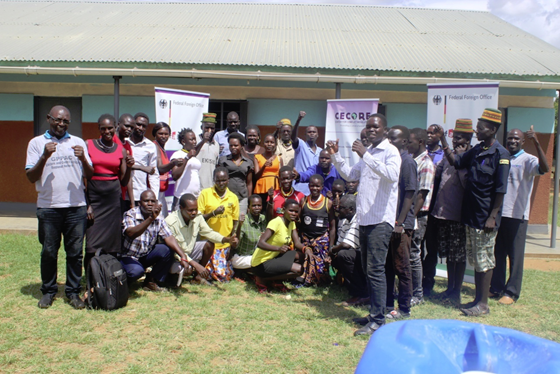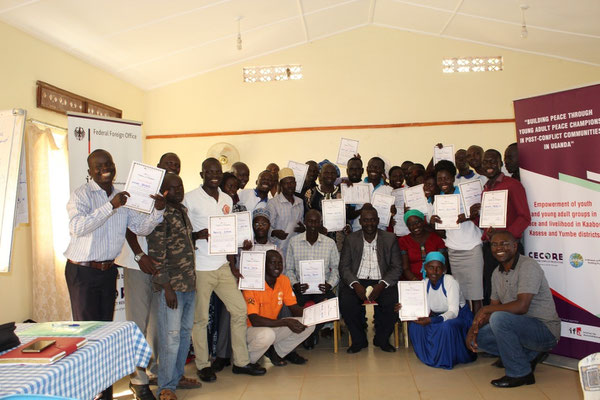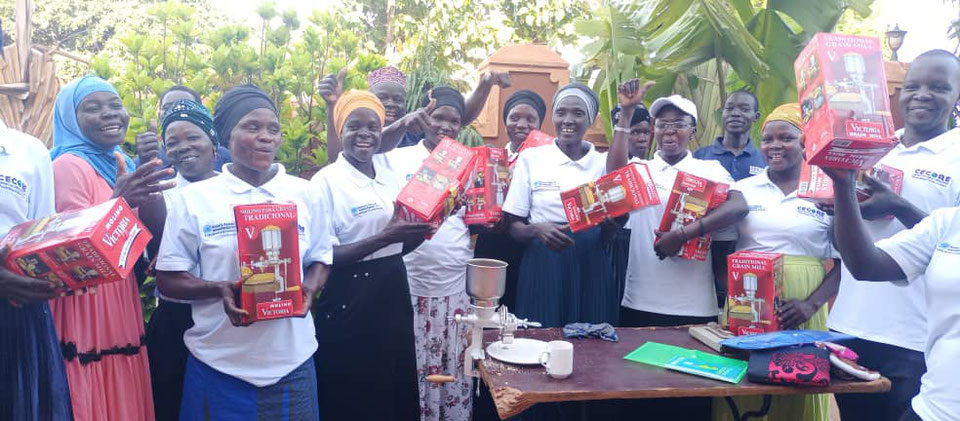Women, Youth & Peacebuilding
Transforming Communities
Empowering women and young people to lead peace, transform conflict and strengthen resilient communities.
CECORE strengthens the leadership of women and youth in peace processes through training, livelihoods support, advocacy and locally led peace infrastructures.
We equip women and young people with the skills, networks and resources to prevent violence and build lasting peace in their communities.
CECORE works side-by-side with women and youth across Uganda and the Eastern & Central Africa region, combining peace education, leadership training, livelihood support and policy advocacy. Our approach centres local ownership-strengthening community-based peace actors and connecting grassroots solutions to national and regional policy spaces.
Women and young people are at the heart of sustainable peace. CECORE’s Women, Youth & Peacebuilding program supports women’s meaningful participation in decision-making and empowers youth-particularly those at risk of or returning from armed violence-with conflict transformation skills, trauma healing, and livelihood opportunities. We apply conflict-sensitive, gender-aware interventions that bridge community-led action with policy and regional advocacy to ensure peace is locally owned, inclusive and durable.
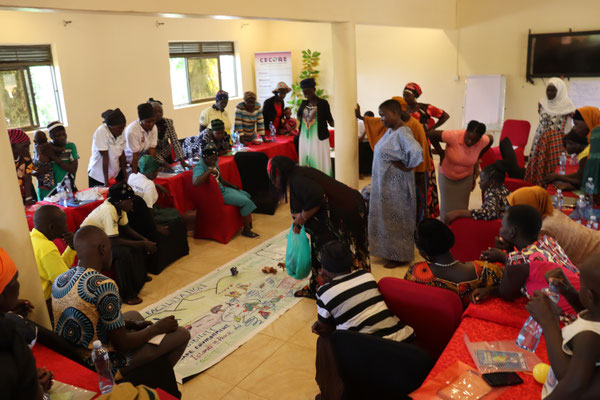
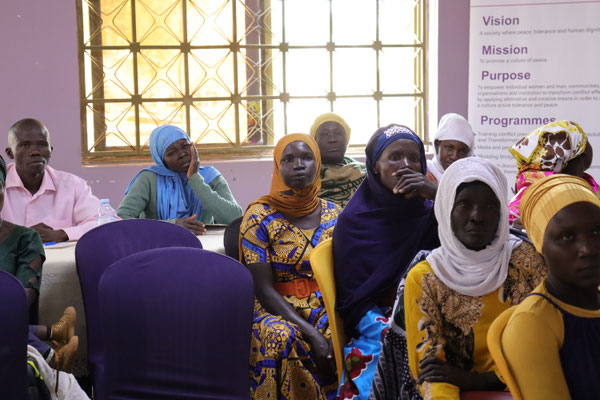
Why we focus on women & youth
Women and youth are critical peace actors whose leadership increases local legitimacy and sustainability of peace processes.
Investing in youth livelihoods and psychosocial healing reduces the drivers of violence and builds civic resilience.
Strengthening women’s meaningful participation shifts decisions toward inclusive, rights-based outcomes.
Objectives
Increase women’s representation and influence in local and district peace processes.
Transform youth at risk into active Peace Champions and community leaders.
Integrate gender, youth and conflict-sensitivity into local governance and development programs.
Link grassroots women and youth initiatives to national and regional policy agendas for sustainable impact.
Core interventions / What we do
Leadership & Civic Training: capacity-building for women leaders, youth groups and community peace committees.
Peace Education & Youth Mentorship: school and community programmes that teach conflict transformation, negotiation and non-violent action.
Livelihoods & “Connectors for Peace”: small enterprise support, vocational linkages and income-generating activities that stabilize livelihoods and reduce re-recruitment.
Trauma Healing & Psychosocial Support: group therapy, peer support and referral pathways for survivors and former combatants.
Advocacy & Policy Linkages: support for women’s participation in peace processes, SDG16+ localisation and connecting local experiences to national/regional policy forums (e.g., GPPAC networks).
Conflict-Sensitive Program Design: ensuring all programming avoids harm and strengthens social cohesion.
Community Dialogue & Mediation: participatory conflict analysis and mediated dialogues between youth, traditional leaders and local authorities.
Ongoing projects to feature
Youth Peace Champions (Phases II & III): Training and reintegration for youth in post-conflict districts-combining peacebuilding training, livelihoods, trauma healing and community dialogues. (Locations: Kasese, Kaabong, Amuru, etc.)
RRW-WPHF – Enhancing Women’s Participation in Peace Processes (Yumbe): Economic empowerment and advocacy to amplify women’s roles in local peace decision-making.
Climate & Conflict Pilot (Kaabong): Local climate-security risk assessment and community guidance on preventing climate-driven conflict with young leaders and women’s groups.
Sport for Peace (Refugee & Host Communities): Social-cohesion curriculum and youth peace champion training in refugee-hosting districts.
SDG16+ Localisation Activities: Tools and community-level work to localise peace, justice and inclusive governance indicators.
Now, it’s your turn.
You’ve seen the impact. You’ve heard the stories. Now, it’s your turn to take action. Whether it’s giving your time, sharing your voice, or making a donation, you have the power to create real change.
FAQ’s
Women, youth (including ex-combatants and at-risk young adults), community leaders and families in selected districts.
CECORE uses inclusive dialogue processes and mediation that involve all stakeholders-men, elders, youth and women to ensure sustainable solutions.
Partners can contact CECORE via the Contact page to discuss program design, funding and technical cooperation.
CECORE applies conflict-sensitive monitoring, baseline studies and periodic evaluations; full M&E reports are available on request.
